Catholic vs. Christian: Understanding the Differences and Similarities
Introduction
Christianity is the world’s largest religion, encompassing many different traditions, including Catholicism, Protestantism, and Eastern Orthodoxy. However, a common question arises: Is Catholicism different from Christianity?
The short answer is that Catholics are Christians, but not all Christians are Catholics. Catholicism is one of the oldest and most structured branches of Christianity, tracing its roots directly to Jesus Christ and the apostles. This article will explore the similarities and differences between Catholicism and other Christian denominations to clarify common misconceptions and deepen your understanding of the faith.
1. The Relationship Between Catholicism and Christianity
To understand the distinction, we must first define what it means to be Christian.
A Christian is anyone who follows the teachings of Jesus Christ. This includes many denominations, such as:
-
Catholics (Roman Catholic Church)
-
Protestants (Lutherans, Baptists, Methodists, Evangelicals, etc.)
-
Eastern Orthodox Christians (Greek Orthodox, Russian Orthodox, etc.)
The Catholic Church is the largest Christian denomination, with over 1.3 billion members worldwide, while Protestantism includes thousands of smaller groups that emerged after the Reformation in the 16th century.
2. Key Differences Between Catholicism and Other Christian Denominations
A. Authority: The Pope and Church Leadership
-
Catholic Belief: The Catholic Church teaches that Jesus established the Church upon Peter, making him the first Pope (Matthew 16:18). Today, the Pope is considered Peter's successor and holds the highest authority in Catholicism.
-
Protestant Belief: Most Protestant Christians do not recognize the Pope’s authority, believing instead in the principle of sola scriptura—that the Bible alone is the highest authority.
B. Sacred Tradition vs. Scripture Alone
-
Catholic Belief: Catholicism follows both Sacred Scripture and Sacred Tradition as sources of divine revelation.
-
Protestant Belief: Many Protestants adhere to sola scriptura, meaning the Bible alone is the foundation of the Christian faith.
C. The Sacraments
-
Catholic Church: The Catholic Church teaches that there are seven sacraments, including Baptism, Eucharist (Holy Communion), Confession, Confirmation, Marriage, Holy Orders, and Anointing of the Sick.
-
Protestant Denominations: Recognize only Baptism and the Eucharist (some churches do not practice sacraments).
D. The Eucharist (Holy Communion)
-
Catholic Belief: Catholics believe in transubstantiation, meaning that the bread and wine truly become the Body and Blood of Christ during Mass.
-
Protestant Belief: Protestants have different views—some see it as symbolic, while others believe in Christ's spiritual presence.
E. Mary and the Saints
-
Catholic Belief: Catholics honor Mary as the Mother of God and venerate the saints as role models of faith. They ask for their intercession, believing they pray on our behalf.
-
Protestant Belief: Most Protestants do not practice the veneration of Mary or the saints, believing that prayer should be directed only to God.
F. Salvation: Faith and Works
-
Catholic Belief: The Catholic Church teaches that salvation comes through faith, good works, and God's grace (James 2:24).
-
Protestant Belief: Many Protestants believe in sola fide, meaning faith alone is enough for salvation.
3. Similarities Between Catholics and Other Christians
Despite these differences, Catholics and other Christians share many core beliefs:
-
Belief in Jesus Christ as the Son of God and Savior.
-
The Holy Trinity—Father, Son, and Holy Spirit.
-
The Resurrection of Christ and His promise of eternal life.
-
The Bible is the Word of God and a foundation for faith.
-
Prayer, worship, and a commitment to spreading the Gospel.
4. Common Misconceptions About Catholicism
-
“Catholics are not Christians.” → False. Catholics are the original Christians, tracing their faith to Christ and the apostles.
-
“Catholics worship Mary and the saints.” → False. Catholics honor but do not worship them. Worship is reserved for God alone.
-
“Catholicism is based on human traditions.” → False. Catholic teachings are rooted in Scripture and Apostolic Tradition.
5. Why Understanding These Differences Matters
Understanding the differences and similarities between Catholics and other Christians fosters unity and respect among believers. While theological disagreements exist, all Christians are called to follow Christ’s teachings and work toward a common mission: spreading the Gospel and living a life of faith, hope, and love.
6. Find Catholic Faith-Inspired Gifts at Guadalupe Gifts
At Guadalupe Gifts, we celebrate the richness of Catholic tradition through faith-inspired jewelry, art, and devotional items. Whether you're looking for a rosary, saint medals, or sacred artwork, we offer unique gifts that honor Catholic heritage.
Top Catholic Church-Approved Resources for Further Reading:
-
United States Conference of Catholic Bishops (USCCB) - What is Catholicism?
-
Catholic Answers - Differences Between Catholics and Other Christians
About Guadalupe Gifts
Guadalupe Gifts is dedicated to offering authentic Catholic gifts that reflect the beauty and depth of Catholic tradition. Our mission is to help believers express their faith through meaningful gifts that inspire devotion and love for God.
Find faith-filled gifts at Guadalupe Gifts.




















Leave a comment